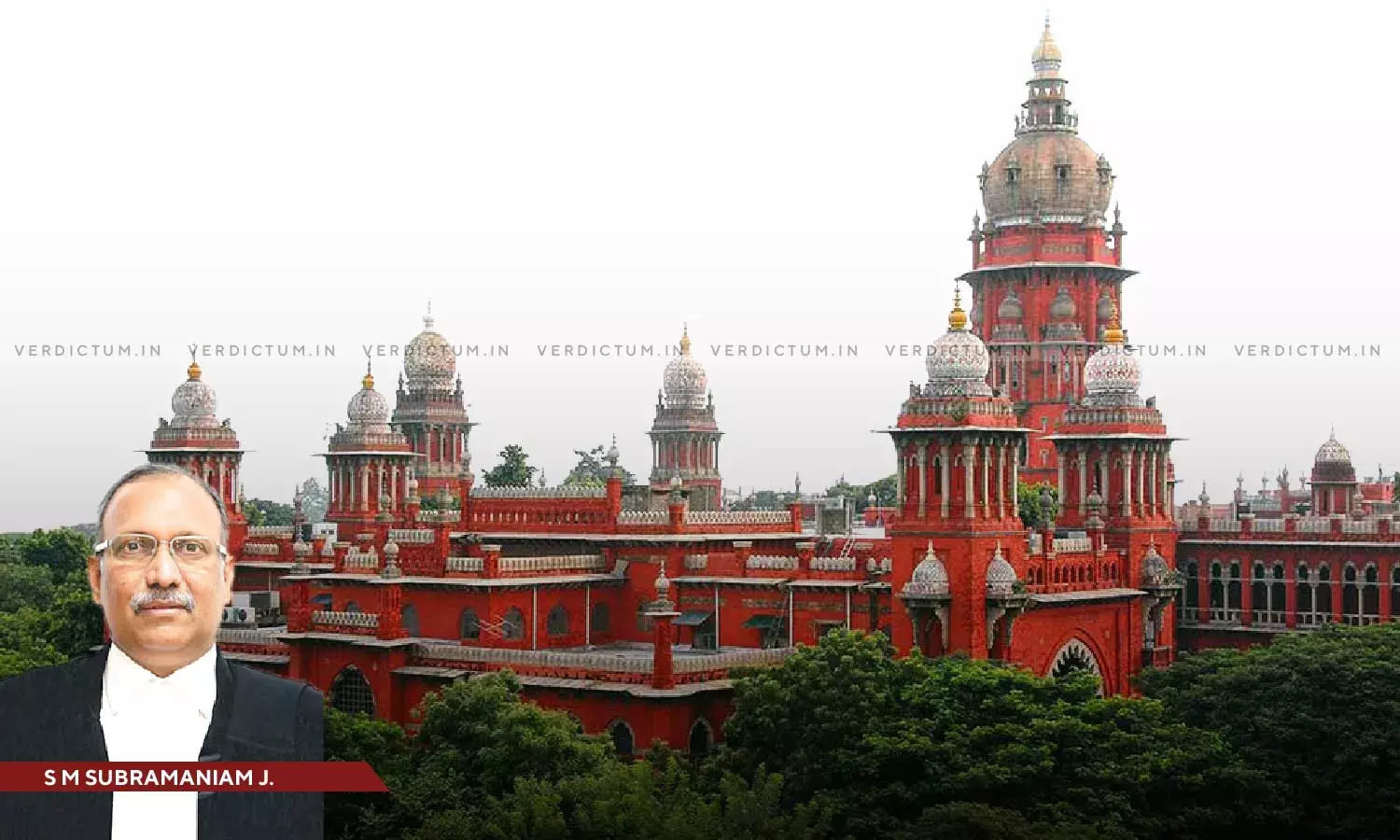Services Of Trained Uniformed Personnel Cannot Be Used To Perform Menial Job In Residences Of Higher Authorities: Madras HC

The Madras High Court has held that the services of trained Uniformed Personnel cannot be used to perform the menial job in the residences of the Higher Authorities.
The Court observed that such menial job in the name of orderlies is below the dignity of the trained Uniformed Personnel who is expected to perform the combatant duty.
"The trained Uniformed Personnels, at no circumstances, be utilised to perform the menial job in the residences of the Higher Authorities or to do their personal works. The very concept is based on public policy and directly in violation of Article 21 of the Constitution of India as it affects the very dignity of the trained Uniformed Personnels…", Justice S.M. Subramaniam observed.
The Court noted that the basic right of the citizen of the country is also infringed on account of such large-scale abuse and misuse of the poor Uniformed Personnel, more specifically, by the Higher Authorities by not utilising the services of these trained Uniformed Personnel only for performing the public duties.
The Court made these observations while dealing with the plea challenging the punishment of dismissal from service imposed on the writ petitioner by the Disciplinary Authority and which was confirmed by the Appellate Authority and Revisional Authority.
The petitioner joined Central Reserve Police Force (CRPF) as Constable.
The Officer Commanding (OC) of the Company asked the petitioner to do orderly duties to assist him in doing all kind of personal works.
The petitioner expressed his inability to do such duties as he was interested only for performing all kind of combatant duties.
Again the petitioner was insisted to do orderly duty. The petitioner again expressed his inability. This created personal vengeance against the petitioner in the mind of the Superior Officials.
The petitioner narrated some other ordeal circumstances underwent by him at the instance of Superior Officials. In this backdrop, a charge memo was issued against the writ petitioner in proceedings framing five charges.
Accepting the findings of the Enquiry Officer, the Disciplinary Authority imposed the punishment of dismissal from service upon the petitioner.
Advocate R. Gowri appeared for the petitioner whereas Central Government Standing Counsel A. Murugan appeared for the Respondents.
The Court observed that none of the authorities have looked into the seriousness of the complaint raised against the Officials by the petitioner and concentrated only on confirming the punishment of dismissal from service.
The Court noted that the constables are the backbone of the Force and their grievances are to be addressed and redressed in the manner known to law.
The Court observed that the findings of the Enquiry Officer is not based on acceptable evidences and that certain Forces are created for the purpose of holding the charges as proved.
The Court held that the major penalty of dismissal from service is not in proportionate with the allegations.
Thus the Court quashed the order dismissing the petitioner from service. The Court directed the authorities to reinstate the petitioner in service without back wages but with continuity of service.
The Court also held thus "In the event of receiving any complaint from any person, regarding the colonial practice of orderlies for personal works, then actions are to be initiated under the Discipline and Appeal Rules and also under the Law."
Cause Title- M. Muthu v. The Union of India & Ors.
Click here to read/download the Order

